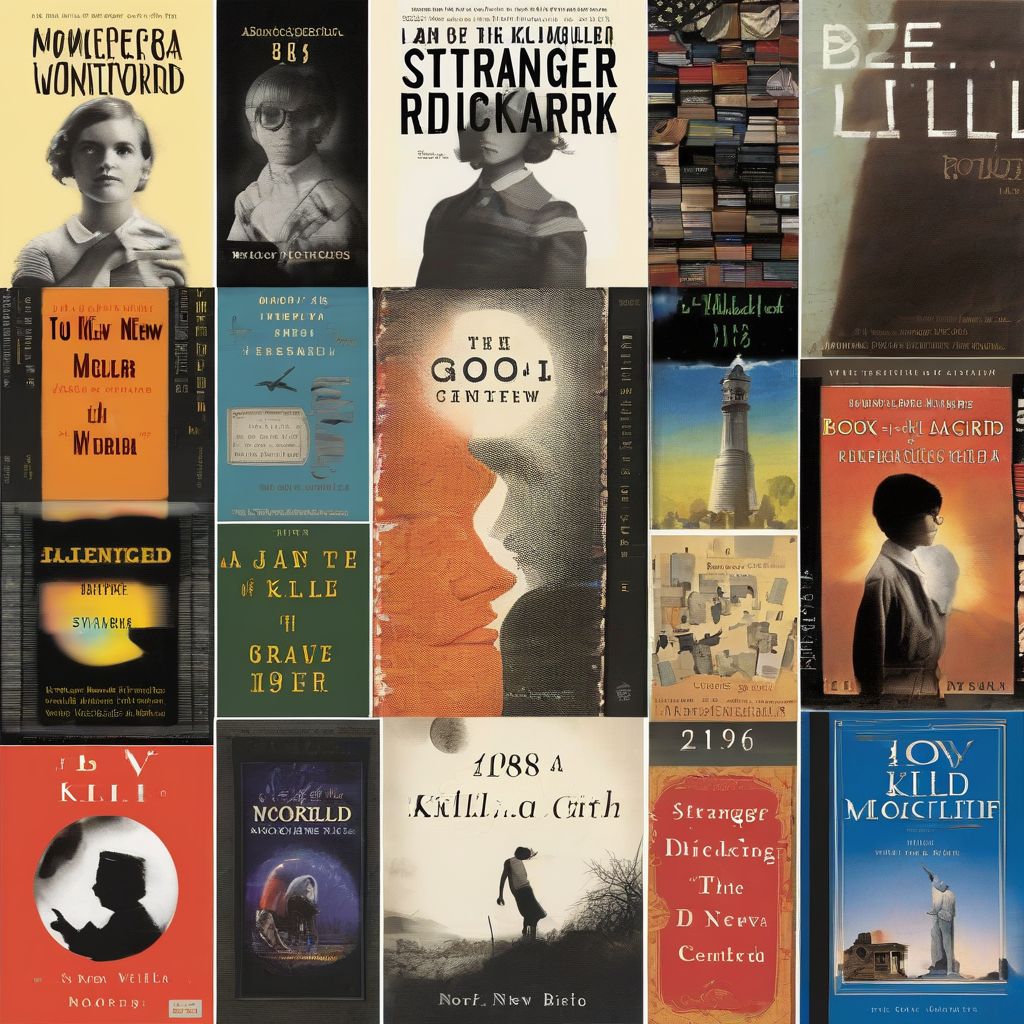“The only true wisdom is in knowing you know nothing.” – Socrates. This ancient quote resonates deeply when considering the vast intellectual landscape of the 20th century. A period marked by immense societal shifts, groundbreaking scientific discoveries, and devastating global conflicts, the 20th century produced a wealth of literature that challenged conventional thinking, explored the human condition, and ignited crucial conversations. This article dives into some of the most thought-provoking books of this era, works that continue to resonate with readers today.
Exploring the Human Psyche: Existentialism and Beyond
The 20th century saw the rise of existentialism, a philosophy exploring the meaning of existence and individual freedom. Jean-Paul Sartre’s Nausea (1938) plunges readers into the mind of Antoine Roquentin, a man grappling with the absurdity of life. Similarly, Albert Camus’ The Stranger (1942) examines themes of alienation and detachment through the story of Meursault, a man seemingly indifferent to societal norms and even his own fate. These works, though challenging, force us to confront fundamental questions about our place in the universe.
The Power of Dystopian Visions
Dystopian novels, often portraying oppressive future societies, served as powerful warnings and social commentaries. George Orwell’s Nineteen Eighty-Four (1949) and Aldous Huxley’s Brave New World (1932) offer chilling depictions of totalitarian regimes controlling every aspect of human life, from thought to emotion. These books compel us to examine the dangers of unchecked power and the importance of individual liberty. Ray Bradbury’s Fahrenheit 451 (1953), exploring a society where books are banned, highlights the vital role of knowledge and intellectual freedom in a thriving democracy.
Challenging Societal Norms: Race, Gender, and Identity
The 20th century also witnessed powerful literary voices challenging established societal norms. Harper Lee’s To Kill a Mockingbird (1960), through the innocent eyes of Scout Finch, exposes the deep-seated racism of the American South and the importance of empathy and justice. Similarly, James Baldwin’s Go Tell It on the Mountain (1953) offers a raw and honest portrayal of the African American experience, exploring themes of faith, family, and identity. Simone de Beauvoir’s The Second Sex (1949) laid the groundwork for second-wave feminism, analyzing the historical and societal constructs that define women as “other.”
The Impact of War and Trauma
The two World Wars and subsequent conflicts left an indelible mark on 20th-century literature. Erich Maria Remarque’s All Quiet on the Western Front (1929) offers a harrowing account of the horrors of World War I, exposing the physical and psychological toll on young soldiers. Primo Levi’s Survival in Auschwitz (1947), a chilling testament to the atrocities of the Holocaust, forces readers to confront the darkest depths of human cruelty while highlighting the resilience of the human spirit.
Expanding Our Understanding of the World
Beyond fiction, the 20th century saw groundbreaking works in non-fiction that expanded our understanding of the world and ourselves. Rachel Carson’s Silent Spring (1962) sparked the modern environmental movement, exposing the devastating impact of pesticides on the natural world. Carl Sagan’s Cosmos (1980) made complex scientific concepts accessible to a wider audience, fostering a sense of wonder and curiosity about the universe. These works remind us of our interconnectedness with the world around us and the importance of responsible stewardship.
 Thought-Provoking Books of the 20th Century
Thought-Provoking Books of the 20th Century
The Enduring Legacy of 20th Century Literature
These are just a few examples of the many thought-provoking books that emerged from the 20th century. These works, with their diverse themes and perspectives, continue to challenge our assumptions, expand our understanding of the human condition, and inspire critical thinking. From exploring the depths of human consciousness to confronting the complexities of societal issues, these literary masterpieces offer invaluable insights into the past and provide a framework for navigating the challenges of the present and future. Their enduring legacy lies in their ability to spark conversation, ignite passion, and ultimately, make us think.
Continuing the Conversation
As we move forward into the 21st century, the questions raised by these authors remain relevant. What does it mean to be human? What are our responsibilities to each other and to the world around us? How can we create a more just and equitable society? By engaging with these thought-provoking works, we can continue to grapple with these important questions and strive for a deeper understanding of ourselves and the world we inhabit. What books from the 20th century have resonated most with you? Share your thoughts and continue the conversation in the comments below. Let’s explore the power of literature together.



